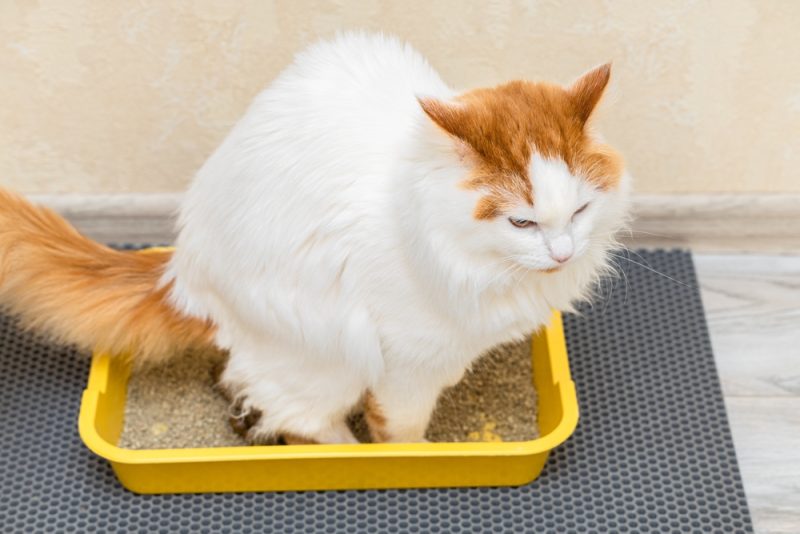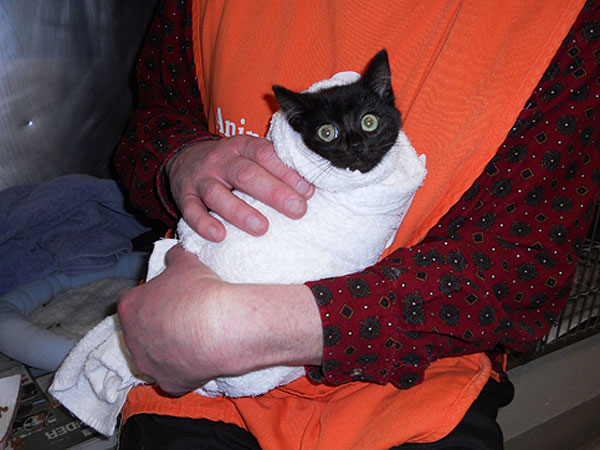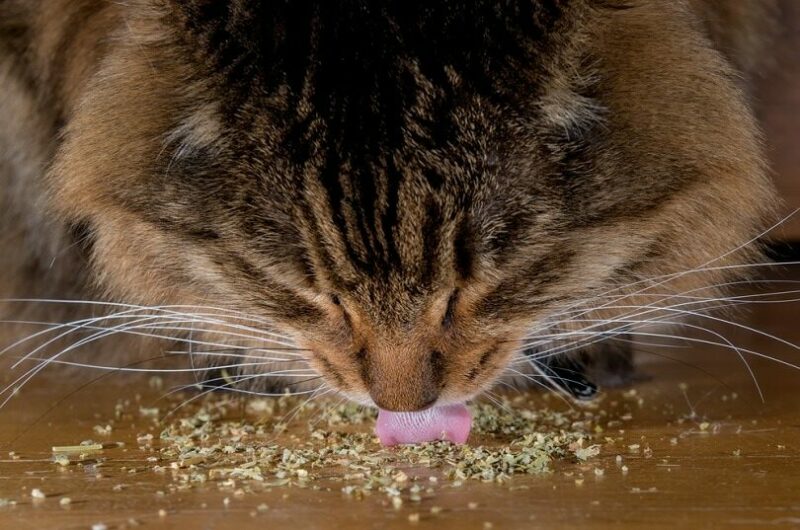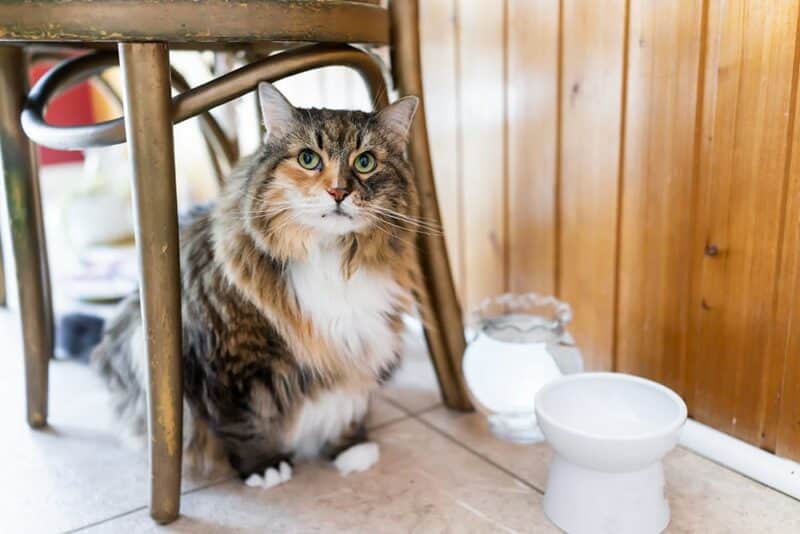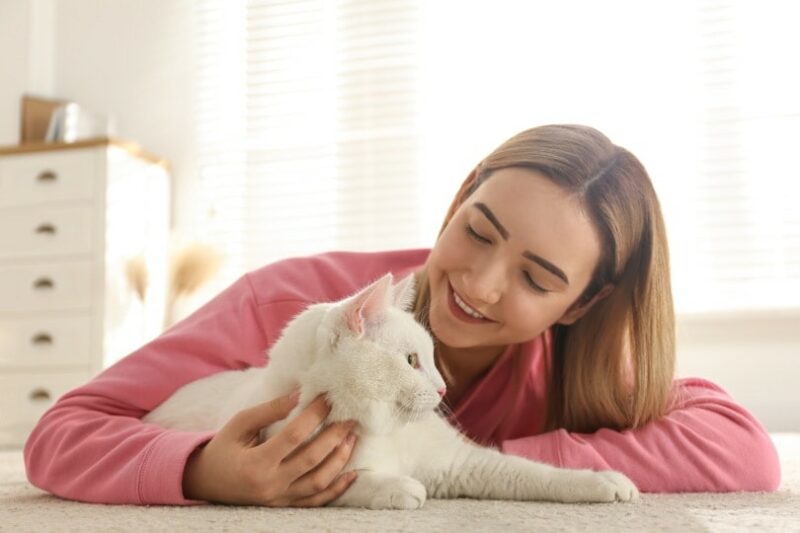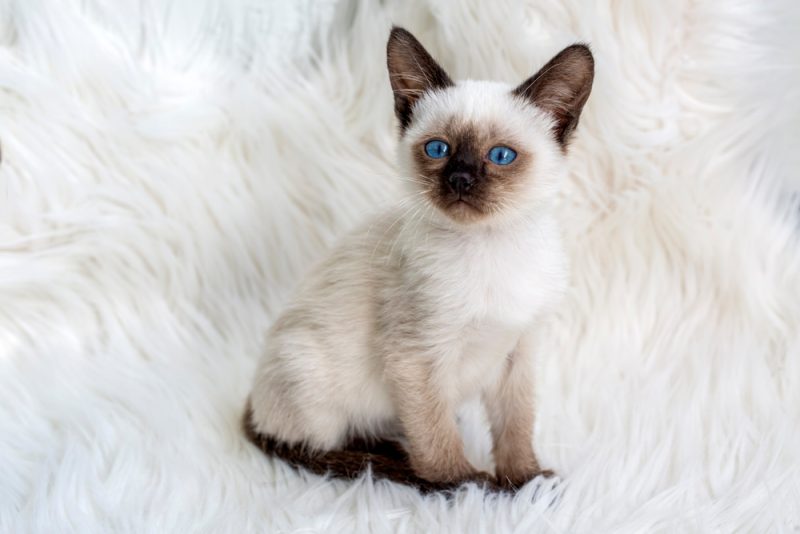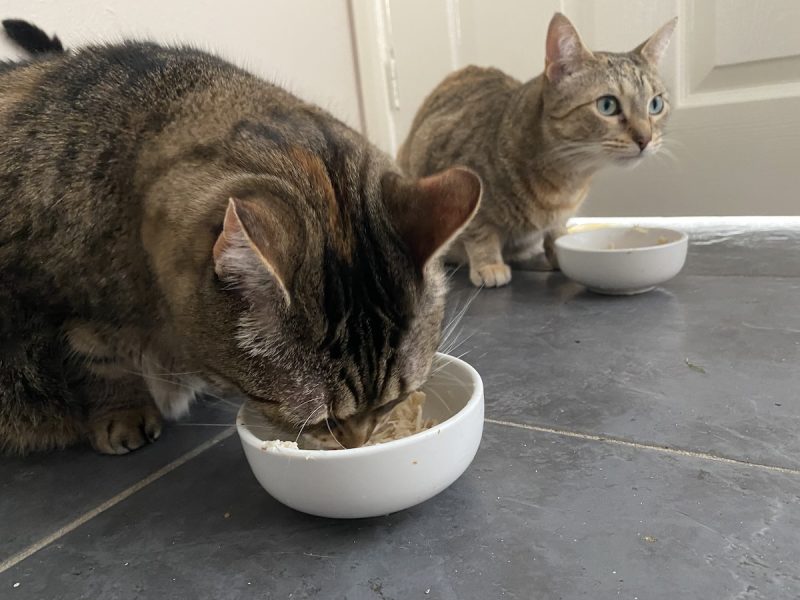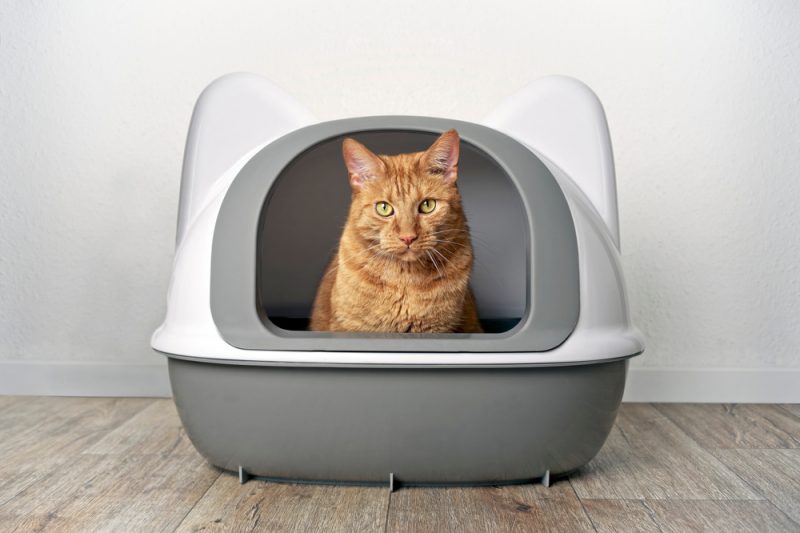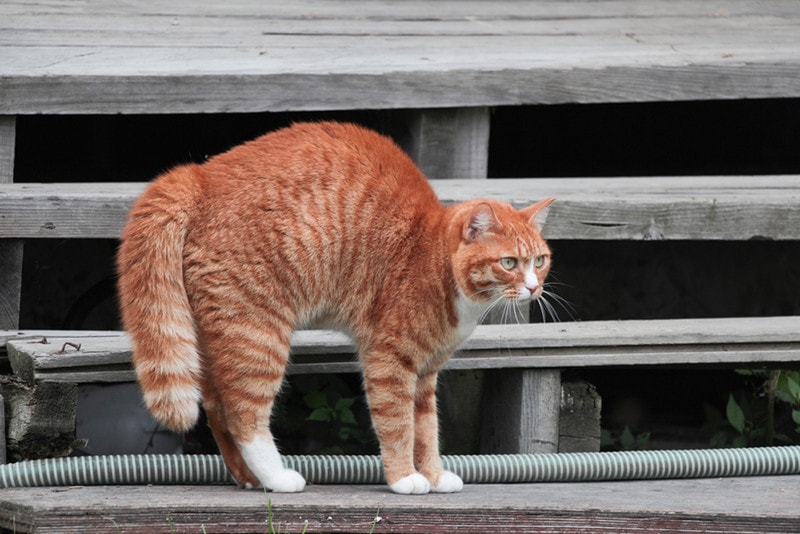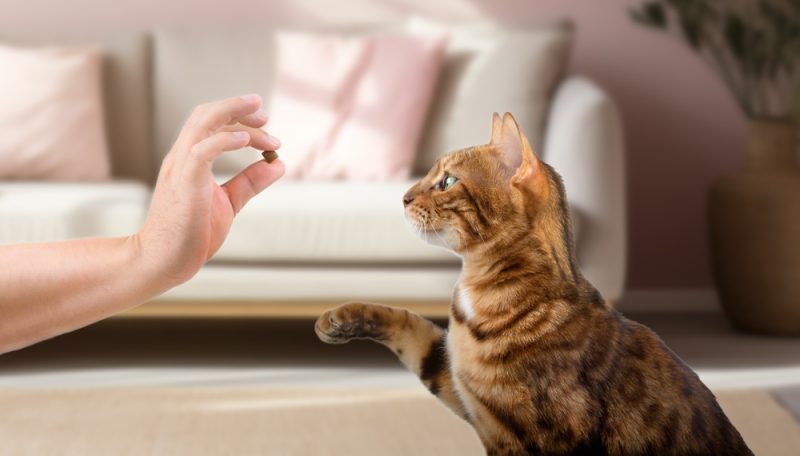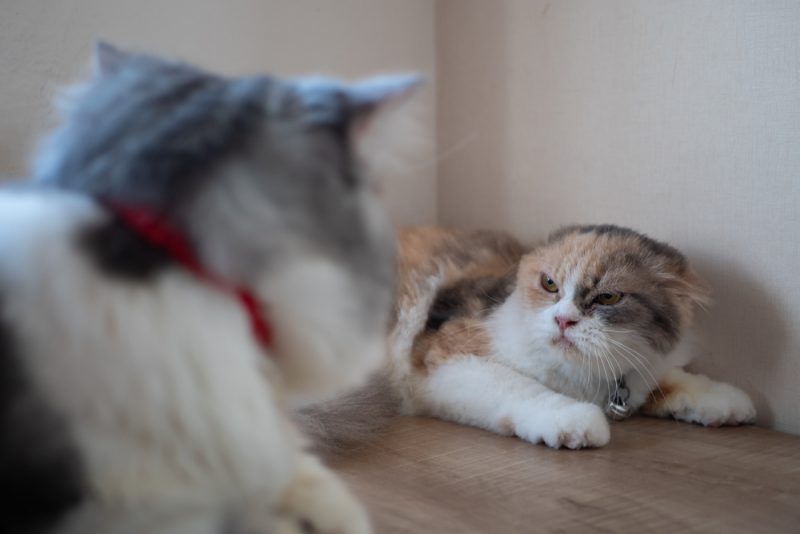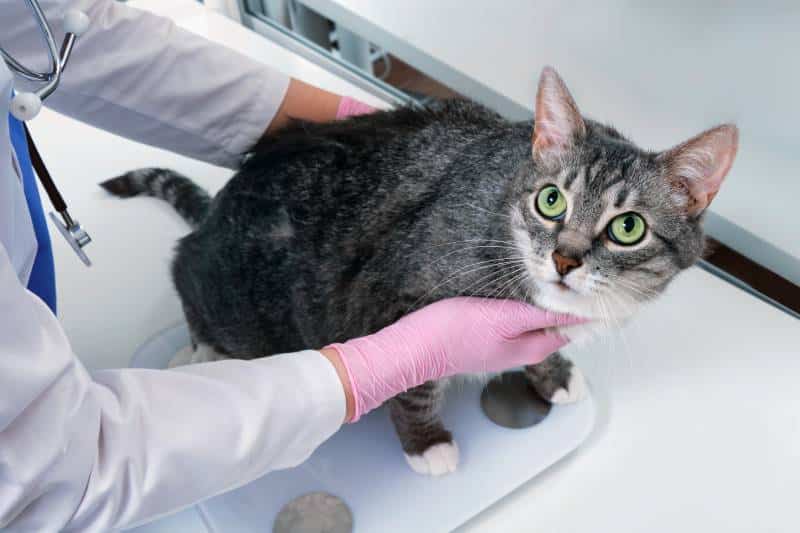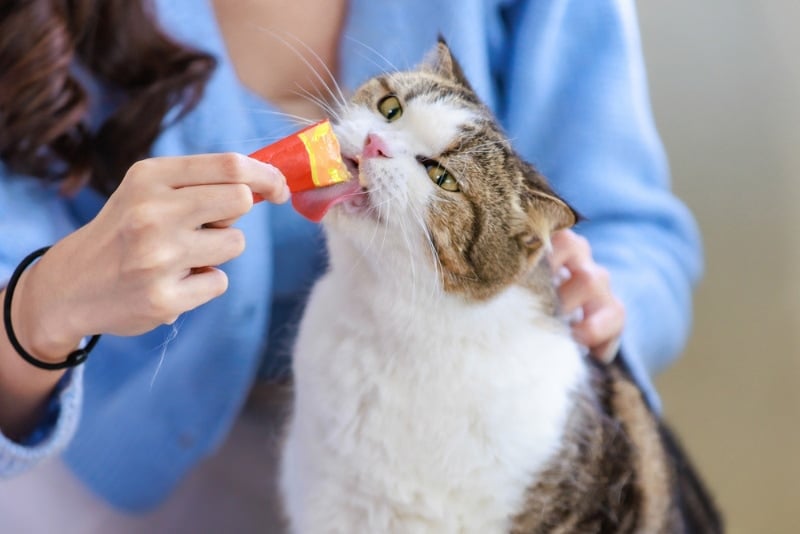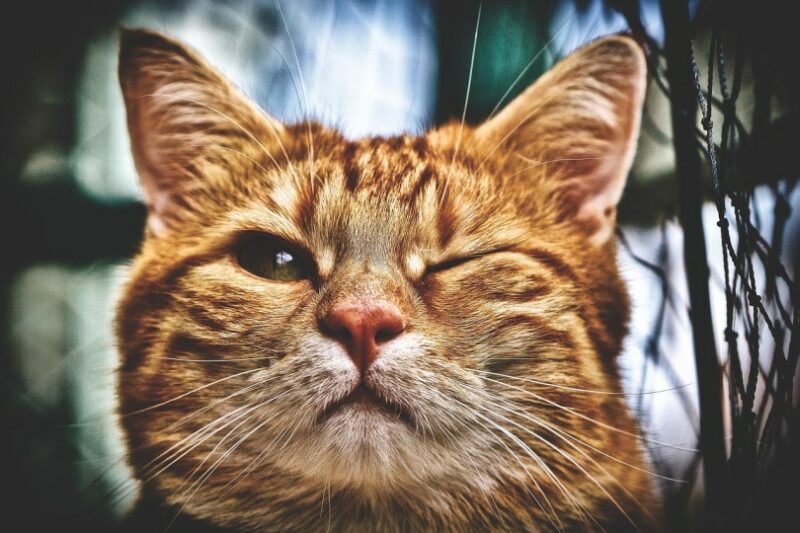When you’re a cat parent, you know that there will be one or two icky messes to clean up. Occasionally, these messes are expected, especially if you’ve noticed that your cat isn’t feeling well. However, some issues can come on more abruptly or while you’re at work. One mess that you might have to deal with is diarrhea.
While it’s smelly, disgusting to clean up, and worrisome when your cat was fine a few minutes prior, diarrhea is not always caused by serious problems. In some cases, though, it may be indicative of a serious issue. This guide will list six common causes of diarrhea in cats and go over when you need to see a veterinarian.

The 6 Main Reasons for Feline Diarrhea
Diarrhea refers to overly soft or runny stools that are passed more frequently than regular bowel movements. It’s not a disease in itself, but rather a symptom of various other issues that can cause digestive upset, ranging from minor causes to more severe health concerns.
1. Diet Change
More often than not, sudden diarrhea is due to a diet change. This can be anything from jumping straight into using a new brand of cat food or simply switching the flavor of your existing brand. It might even be the new treats that you saw in the store and thought that your cat might enjoy.
If you’ve ever tried a new food that you’ve never eaten before or it’s been a while since you last ate a certain cuisine, you may notice that your stomach hurts afterward. It’s the same with cats, although they tend to be much more sensitive.
This is why it’s important to follow the transition instructions on the back of the cat food package when you introduce a new food to their diet. Slowly allowing your cat’s digestive system to adjust will help prevent any unnecessary stomach issues.
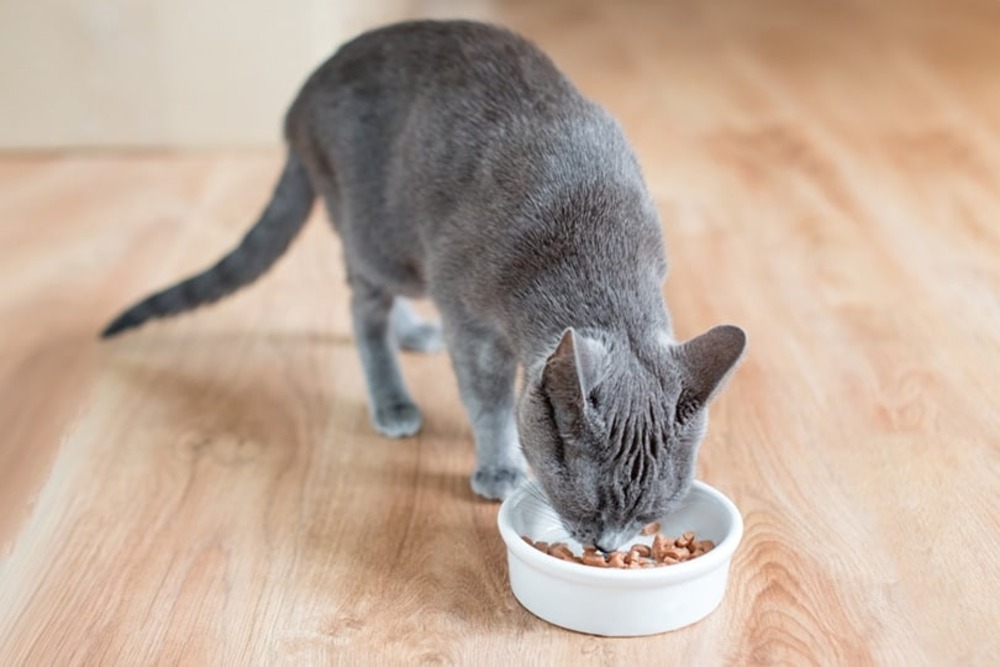
2. Human Food
Many of us have given our cats a piece of ham out of our sandwich or a bite of chicken from our dinner. Not all human food is safe for cats, though, and it can be surprising how much of our food can cause digestive upset in cats.
While everyone knows about chocolate and dogs, chocolate bars are unsafe for cats too. Animals just can’t digest it the same way that we can. Cats don’t have a taste receptor for sweetness either, so there’s no reason that they should be anywhere near your chocolate.
Onion and garlic are other big ingredients to avoid. Raw, cooked, or powdered, onions and garlic can have devastating effects on your feline friend.
3. Hunting
Outdoor cats might be more susceptible to diarrhea caused by hunting, but indoor cats can suffer too. Most of the time, eating a mouse or two won’t cause a problem. However, many people put down poison to deal with the rodents in their barn, animal feed, or kitchen cabinets.
In these cases of secondary poisoning, also called relay toxicosis, your cat can receive a minor dose of poison, too. It’s not often enough to harm them — unless they eat the poison straight from the source — but it’s enough to give them a bad stomachache or diarrhea while the poisoned mouse passes through their system.
Unfortunately, there’s no way to prevent your cat from hunting. Keeping them indoors can work to an extent, but if you use poison to kill the mice in your pantry, your cat might still suffer from third-party poisoning if they catch the poisoned mice.
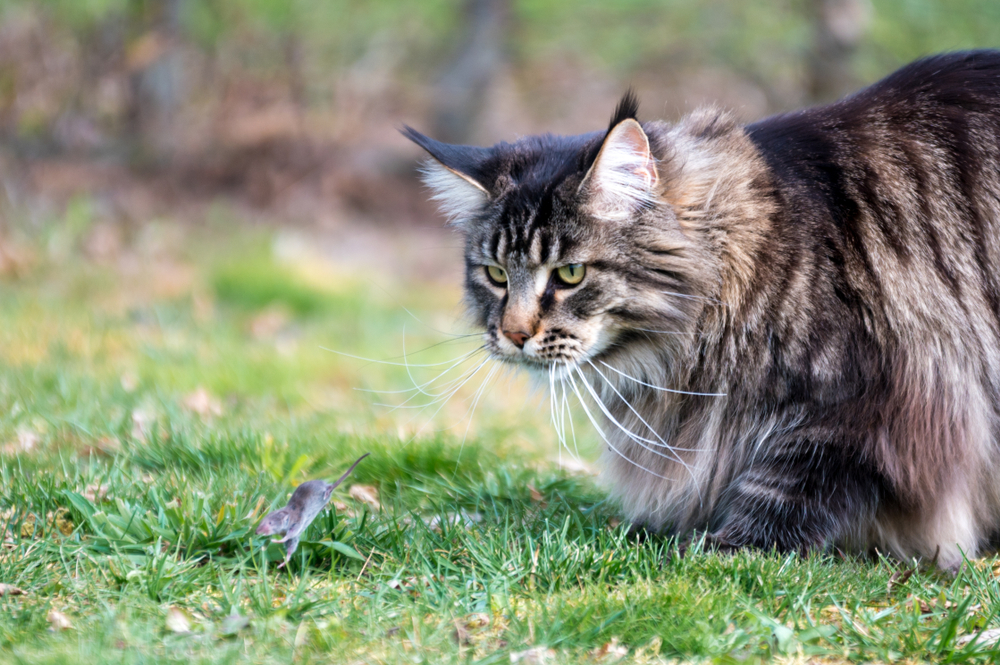
4. Nutrient Imbalance
Despite the similarities between brands, cat food is not the same across the board. Making sure your cat’s food meets the proper nutritional requirements is why you need to be careful if you make it yourself.
Your cat’s main diet isn’t the only thing that you should consider here, though. Nutrient imbalances can also be caused by the snacks that your cat eats. Too many commercial cat chews or fruits or vegetables, even cat-safe ones, can all throw off the careful balance of nutrients in your cat’s system.
The proper nutrients will keep your cat’s digestive system working properly, but an imbalance can lead to inflammation and diarrhea.
5. Stress
For all their aloofness and uncaring dispositions, cats can be incredibly sensitive when it comes to their routine. While one cat may react to a new situation more calmly than another, they all feel uncertain when it comes to unexpected changes. Stress can cause your cat to refuse to eat, over-groom, lose fur, or even have a bad case of diarrhea.
It’s not always big obvious changes that might freak your cat out either. While renovations or a house move are easy to determine, a new street cat in the neighborhood can be harder to notice.
You can’t control every aspect of your cat’s life, but you can do your best to keep them as settled as possible. Create a safe spot for your cat with their favorite things, and use a gentle voice to reassure them.

6. Underlying Health Issue
Serious or minor, diarrhea is a sign that not all is right with your cat. While a minor case will pass on its own, more severe cases can be a symptom of an underlying health issue, like inflammatory bowel disease, gastrointestinal cancer, or intestinal parasites. Not all serious cases of diarrhea are caused by health issues like cancer, but you should consult your veterinarian for a proper diagnosis.
Medication that your cat is taking for existing health conditions can also affect their bowel movements. You’ll need to discuss the symptoms with your veterinarian to determine the next course of action.
If you need to speak with a vet but can't get to one, head over to PangoVet. It's an online service where you can talk to a vet online and get the advice you need for your pet — all at an affordable price!


Can You Treat Diarrhea at Home?
Your cat’s diarrhea doesn’t always need to be treated by a veterinarian. Sometimes, the issue will clear up within a day and is often simple enough to care for at home — if not a little icky. There are even occasions when you might not notice that your cat is suffering from diarrhea at all, especially if it’s just a one-off while they’re out and about.
Even if you do decide that you need to visit a veterinarian, here are a few ways that you can tend to your cat’s diarrhea at home.
Bland Diet
If you have a dog that has had diarrhea in the past, you might have heard of fasting to help treat them. Cats are different, and continuing to offer food to them is usually better than withholding food altogether. You may have to adjust their meal plan a little, though, especially with more severe cases of diarrhea.
Feed them a tablespoon or two of a bland meal a few times over a couple of hours. Hourly feedings should be more than ample, but keep the portions small. After a couple of these feeding sessions, give your cat a few hours without food to let them rest. Pay attention to any vomiting or worsening diarrhea.
A bland food that you can make at home is boiled boneless chicken. Make sure the skin is removed and don’t add any spices. The plainer the meal is, the more effective it’ll be. You can add plain white rice if you have some.
If you’re taking a trip to the grocery store, there are a few shop-bought supplies that you can look for. Baby food is an option, provided that you make sure the recipe doesn’t use onion or garlic, as both of these ingredients are toxic to cats. Chicken or turkey flavors are ideal.
Your veterinarian might also recommend prescription cat foods that will help with long-lasting diarrhea. Such foods will help your cat receive the nutrition that they need without worsening their symptoms.
Once their symptoms clear up, slowly reintroduce their usual cat food. It may take a few weeks to get them used to eating normal food.
Don’t forget the most important nutrient – water! Proper hydration is essential for your cat’s recovery.
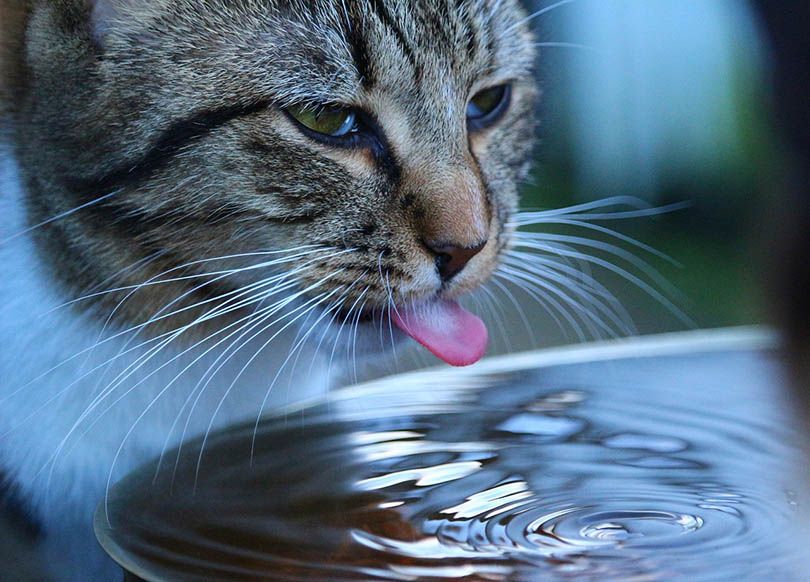
Clean Up
Looking after your cat includes cleaning up after them. Tend to any messes as quickly as possible. This will help minimize the risk of stains or any lingering odors. Keeping your cat’s bedding clean will help them feel more comfortable too.
Observation
Diarrhea is unpleasant to look at, but you must pay attention while your cat is recovering. Their bowel movements can give you an idea of how long their diarrhea will last and whether a trip to your veterinarian is necessary.
As your cat recovers, you should see their stool become more solid. They might even go straight from a runny poop in the morning back to normal in the evening if whatever upset their system has passed through. In this case, there’s no real need for concern.
Bloody diarrhea, however, may be indicative of a much more serious problem and should be treated accordingly. If you see any blood or your cat has had diarrhea for more than a few days, you should visit your local vet.
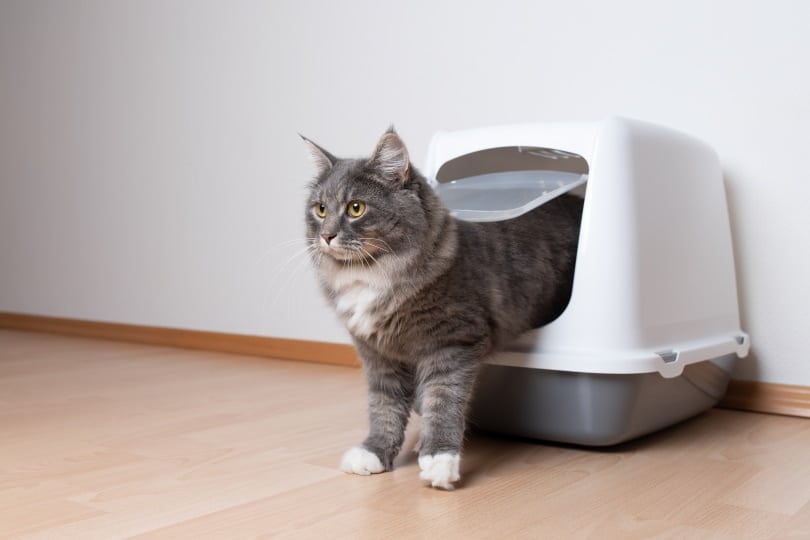
Rest
A quiet, safe place to rest can do wonders for your cat’s stress levels. This is especially true if there’s a big change going on in your household that’s caused your cat’s diarrhea. Allowing your cat to curl up for a nap with their favorite blanket in their preferred sunny spot or on their cat tree may help settle their nerves.
Creating a quiet space for your cat to recover can also help you keep the mess contained in one area, especially if their diarrhea lasts for longer than a day. Set your cat up in a room that has hardwood or tile floors, with blankets that you can wash if they get dirty. Keep a clean litter tray nearby so your cat has more chance of making it to the toilet.

When Do You Need to See a Veterinarian?
Every so often, you’ll spot a particularly runny poop in your cat’s litter tray, but their next bowel movement will look perfectly fine. While this isn’t normal in the strictest sense of the word, a one-off loose stool usually just means that whatever disturbed your cat’s digestive system has worked its way out.
There are times when you do need to visit a veterinarian, though.
- Diarrhea that lasts longer than 24 hours
- Bloody diarrhea
- The presence of other symptoms, like vomiting, weakness, fever, abdominal pain, dehydration, or loss of appetite

Conclusion
Diarrhea is never pleasant, no matter who has to deal with it. It’s often caused by something that your cat ate passing through their system. As long as their diarrhea doesn’t last for longer than 24 hours and there are no other signs of underlying illnesses, you don’t need to worry.
Bloody diarrhea or other symptoms, like vomiting or fever, are all warning signs for more severe cases of diarrhea. If you spot any of these, you should contact your veterinarian as soon as possible.
Featured Image Credit: Oleg Opryshko, Shutterstock
